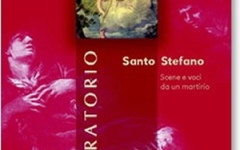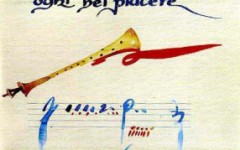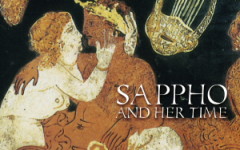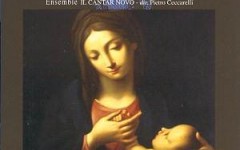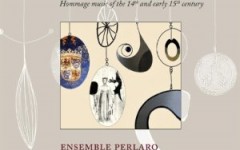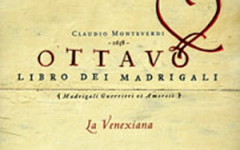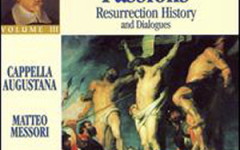C. Monteverdi, Ottavo Libro Dei Madrigali – La Venexiana
Giovanni Cantarini, Giuseppe Maletto, tenori
Gabriele Carnovich, basso
Gabriele Palomba, tiorba
Marta Graziolino, Arpa
Fabio Bonizzoni, cembalo
CLAUDIO MONTEVERDI
Ottavo Libro dei Madrigali
La Venexiana
Claudio Cavina
GCD 920928 (3 CDs)
—
Performing artists
La Venexiana
Claudio Cavina, director
Emanuela Galli, soprano
Alena Dantcheva, soprano
Nadia Ragni, soprano
Roberta Mameli, soprano
Claudio Cavina, countertenor
Kiersti Odegaard, alto
Giuseppe Maletto, tenor
Sandro Naglia, tenor
Giovanni Cantarini, tenor
Mario Cecchetti, tenor
Daniele Carnovich, bass
Matteo Bellotto, bass
Marta Graziolino, harp
Gabriele Palomba, theorbo
Fabio Bonizzoni, harpsichord
Svetlana Fomina, Daniela Godio, Carlo Lazzaroni, Stefano Marcocchi, Efix Puleo, Gianni de Rosa, Rodney Prada, Rebeca Ferri, Caterina dell’Agnello, Giorgio Sanvito
—
Production details
Playing time: 70’00 + 50’03 + 73’24
Recorded in Mondovì and Roletto, Italy, in November 2004, February 2005 and March 2005
Engineered by Davide Ficco
Produced by Sigrid Lee & La Venexiana
Executive producer: Carlos Céster
Editorial assistant: María Díaz
Art direction & design: oficina tresminutos 00:03:00
Booklet essay: Stefano Russomanno
Booklet in English-Français-Deutsch-Español-Italiano
CLAUDIO MONTEVERDI (1567-1643)
Ottavo Libro dei Madrigali, 1638
Madrigali Guerrieri et Amorosi
CD I
1 Sinfonia
2 Altri canti d’Amor
3 Hor che ’l ciel e la terra
4 Gira il nemico insidioso
5 Se vittorie sì belle
6 Ogni amante è guerrier
7 Combattimento di Tancredi e Clorinda
CD II
1 Ardo, avvampo, mi struggo
2 Armato il cor
3 Introduzione al Ballo: Volgendo il ciel
4 Ballo: Movete al mio bel suon
5 Altri canti di Marte
6 Vago augelletto che cantando vai
7 Mentre vaga Angioletta
8 Ardo e scoprir, ahi lasso
9 Dolcissimo uscignolo
CD III
1 Chi vuol aver felice e lieto il core
2 O sia tranquillo il mare
3 Lamento della Ninfa
4 Ninfa che scalzi il piede
5 Perchè t’en fuggi, o Fillide
6 Non partir ritrosetta
7 Su, su, su, pastorelli vezzosi
8 Ballo delle Ingrate
—
About this CD
What is a madrigal? An unsuspecting listener of Monteverdi’s Eighth Book would have trouble answering this question. The flagrant heterogeneousness of this collection tells us that for Monteverdi, the madrigal has gone from being a genre endowed with univocal traits to encompass a multitude of forms, whose objective nevertheless continues to be the representation of human passions through the link between oratione (the poetic text) and armonia (the music). We can say that Monteverdian madrigals make their transition from contemplation to beating pulse, from the look to the gesture, from sight to touch, in the Eighth Book. The collection hangs from a network of impossible balances. The traditional traits of the genre evaporate in what is precisely its last and most glorious celebration. An ambiguous terrain that, nevertheless, reveals itself as being full of possibilities and developments. The Madrigals of Love and War can appear as Monteverdi’s testament in this field, but also as an extraordinary range of proposals for the future. Even in the early 21st century, Monteverdi continues to speak to us with the force and immediacy ofa ‘contemporary’.
La Venexiana’s most eagerly anticipated recording, their rendering of the Eighth Book is here to stay as the definitive Italian version of what is Monteverdi’s most important publication together withL’Orfeo. Their forward-looking, suprisingly ‘modern’ vision of what key compositions such as theBallo delle Ingrate, the Lamento della Ninfa or the Combattimento di Tancredi e Clorinda should sound like is profoundly moving and will leave nobody cold. Definitely, this set will mark a ‘before’ and an ‘after’ in the interpretation of Monteverdi’s Madrigali Guerrieri et Amorosi.
